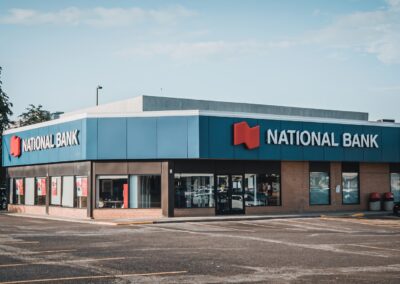Fintech Adoption in Different Regions: Cultural and Demographic Influences
Cultural Factors Shaping Fintech Acceptance
Fintech adoption in different regions is heavily influenced by cultural factors. In places like Saudi Arabia, UAE, Riyadh, and Dubai, cultural attitudes towards technology and finance play a crucial role in how fintech solutions are perceived and adopted. For instance, in the Middle East, where trust and relationships are paramount in business dealings, fintech companies need to build strong reputations and ensure their technologies are secure and reliable.
In these regions, there is also a strong emphasis on Sharia-compliant financial products, which means that fintech solutions must align with Islamic banking principles to gain widespread acceptance. This cultural nuance requires fintech companies to innovate in ways that respect and integrate these principles, offering products that meet the needs of the local population while adhering to their cultural values. Furthermore, marketing and communication strategies must be tailored to resonate with local customs and languages to effectively reach and engage potential users.
Demographic Factors and Technological Savviness
Demographic factors, such as age, education, and income levels, significantly impact fintech adoption. In regions like Saudi Arabia and the UAE, a large proportion of the population is young and technologically savvy, which bodes well for the adoption of advanced fintech solutions. This demographic is more open to experimenting with new technologies and is often the first to embrace digital financial services.
Education also plays a critical role. Higher levels of education correlate with a better understanding and greater acceptance of fintech solutions. In cities like Riyadh and Dubai, where educational standards are high, there is a greater propensity for the population to adopt fintech. Moreover, the increasing internet penetration and smartphone usage in these regions provide a solid foundation for the growth of fintech services.
Income levels, however, can either accelerate or hinder fintech adoption. Higher-income individuals are more likely to use fintech solutions due to their greater financial literacy and access to technology. Conversely, lower-income groups may face barriers such as lack of access to smartphones or internet services, necessitating targeted strategies to bridge this digital divide.
Government and Regulatory Support
The role of government and regulatory support in fintech adoption cannot be overstated. In Saudi Arabia and the UAE, government initiatives and favorable regulatory environments have been instrumental in fostering fintech innovation and adoption. For example, the Saudi Vision 2030 and the UAE Vision 2021 include strategic plans to enhance financial technology infrastructure and promote digital payments.
Regulatory sandboxes in these regions allow fintech companies to test their products in a controlled environment, ensuring they meet regulatory requirements while fostering innovation. Additionally, government-backed programs and partnerships with financial institutions help build trust and credibility for fintech solutions, encouraging broader acceptance among businesses and consumers alike.
Strategies for Successful Fintech Integration
Localized Product Development
To successfully penetrate markets with distinct cultural and demographic characteristics, fintech companies must focus on localized product development. This involves customizing financial products to meet the unique needs and preferences of the target population. In Saudi Arabia and the UAE, for example, offering Sharia-compliant fintech products can significantly enhance adoption rates.
Localized development also means adapting user interfaces to local languages and cultural contexts. For instance, fintech apps in Riyadh and Dubai should offer Arabic language support and design elements that resonate with local aesthetics. This approach not only makes the technology more accessible but also builds a stronger connection with users.
Building Trust Through Education and Transparency
Trust is a critical factor in the adoption of fintech solutions, particularly in regions with strong cultural emphasis on personal relationships and trust in financial dealings. Fintech companies must prioritize transparency and security to build trust among potential users. This includes clear communication about how data is used and protected, as well as robust security measures to prevent fraud and cyber-attacks.
Education initiatives are also vital. By offering workshops, webinars, and informative content, fintech companies can educate the population about the benefits and functionalities of their products. This not only increases financial literacy but also empowers users to make informed decisions, thereby fostering greater trust and acceptance.
Strategic Partnerships and Community Engagement
Strategic partnerships with local businesses, banks, and government entities can significantly enhance fintech adoption. In Saudi Arabia and the UAE, collaborations with established financial institutions can provide fintech companies with valuable insights into local market dynamics and regulatory requirements. These partnerships also lend credibility to fintech solutions, making them more appealing to potential users.
Community engagement is equally important. Fintech companies should actively participate in local events, sponsor community programs, and support initiatives that align with their values. By becoming a visible and contributing member of the community, fintech companies can build strong relationships and foster a sense of trust and loyalty among users.
Conclusion: Navigating the Path to Fintech Success
In conclusion, the adoption of fintech solutions is deeply influenced by cultural and demographic factors. In regions like Saudi Arabia, UAE, Riyadh, and Dubai, understanding and addressing these factors is crucial for successful market penetration. By focusing on localized product development, building trust through education and transparency, and leveraging strategic partnerships and community engagement, fintech companies can navigate the complexities of these markets and drive sustainable growth. For business executives, mid-level managers, and entrepreneurs, recognizing these dynamics and adapting strategies accordingly will be key to leveraging fintech for business success.
#FintechAdoption #SMEGrowth #AIinFinance #BlockchainTechnology #SaudiArabia #UAE #Riyadh #Dubai #BusinessSuccess #LeadershipSkills #ProjectManagement























